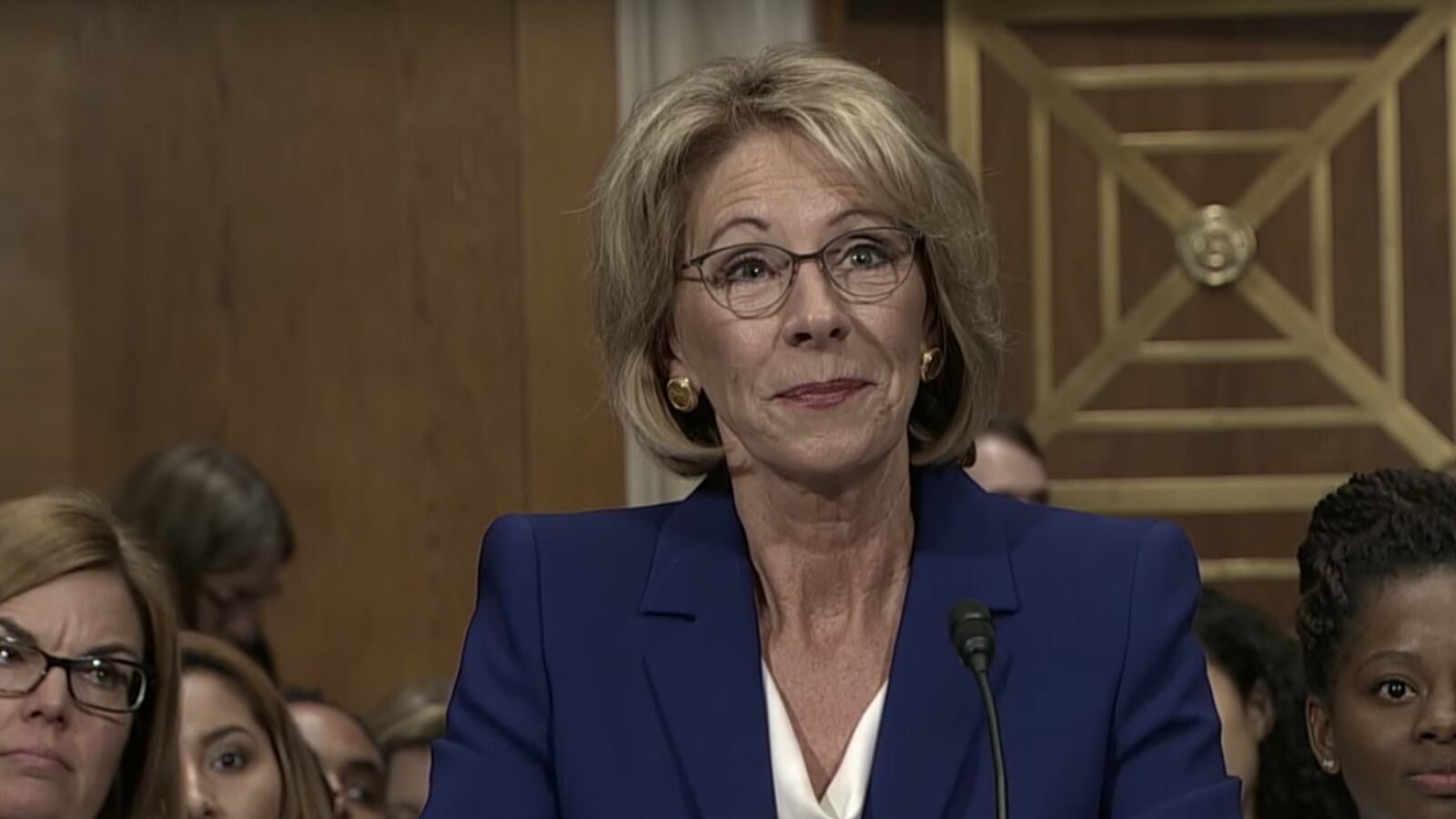After a bruising fight, Betsy DeVos, the billionaire philanthropist and school choice activist, got the votes she needed to become the next U.S. education secretary.
It took a historic move to make it happen: a vote from Vice President Mike Pence, who was called in to break a 50-50 tie in the Senate. All of that body’s Democrats voted against DeVos, as did two Republicans.
But despite a 24-hour, last-ditch talkathon by Democrats, a third Republican to oppose DeVos — whose vote would have toppled her nomination — never emerged.
The vote was historic for more than just Pence’s role. In the two months since President Donald Trump nominated DeVos, the Michigan power broker became his most controversial nominee, attracting more public opposition even than his choices for secretary of state or attorney general. DeVos’s bungling of questions about guns in schools and special-education law ignited unprecedented opposition: congressional mailboxes overflowed, grizzly bear memes appeared at nationwide protests, and rumors that a Pennsylvania senator could be on the fence sparked a crowdfunding campaign that topped $70,000. She was even mocked on “Saturday Night Live.”
DeVos’s nomination also widened growing divides among the bipartisan coalition that has pushed for overhauling American education over the last 25 years. Eli Broad, the developer turned charter-school backer; Sen. Cory Booker, who supported charters and private-school vouchers as Newark mayor; and the group Democrats for Education Reform have all said DeVos is the wrong choice.
As the head of the federal education department, DeVos won’t have unlimited authority to reshape education. In fact, state legislatures hold most of the power to make decisions about funding for schools, how schools are judged, and how charter schools will grow, for example. Their power has only increased in the last year amid an overhaul of federal education law.
That means states with liberal legislatures are unlikely to embrace the conservative agenda quickly. But DeVos’s could use her powerful pulpit to advance conservative ideas that, if enacted, would affect all 50 states.
These include potentially changing the federal tax code to allow parents to use tax-deductible donations to pay private school tuition and changing rules about how federal funds for poor students are allocated. DeVos will also set the pace and tone around enforcement of federal anti-discrimination rules in schools.
Betsy DeVos has little experience with public schools. What should she know about yours? Tell us here.


